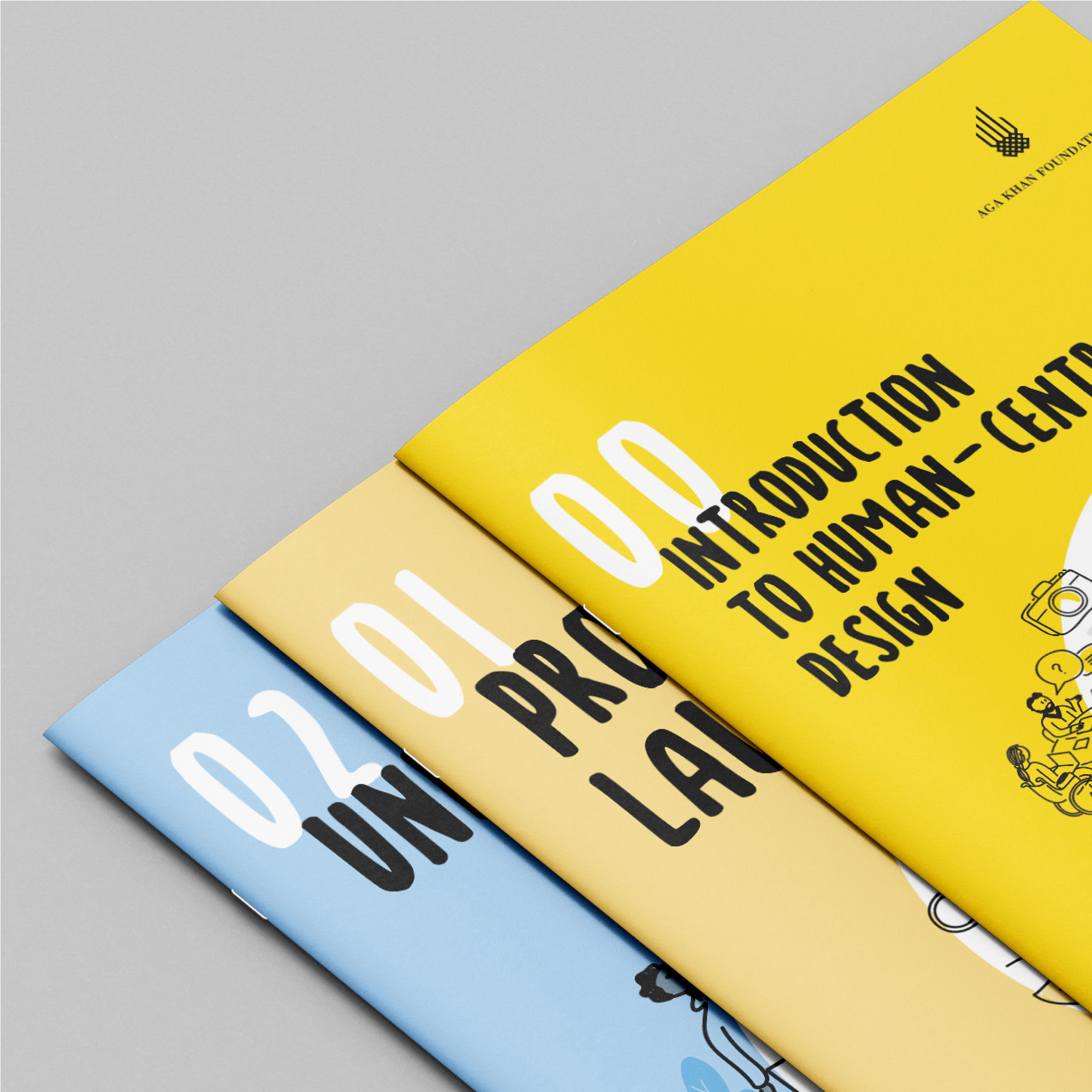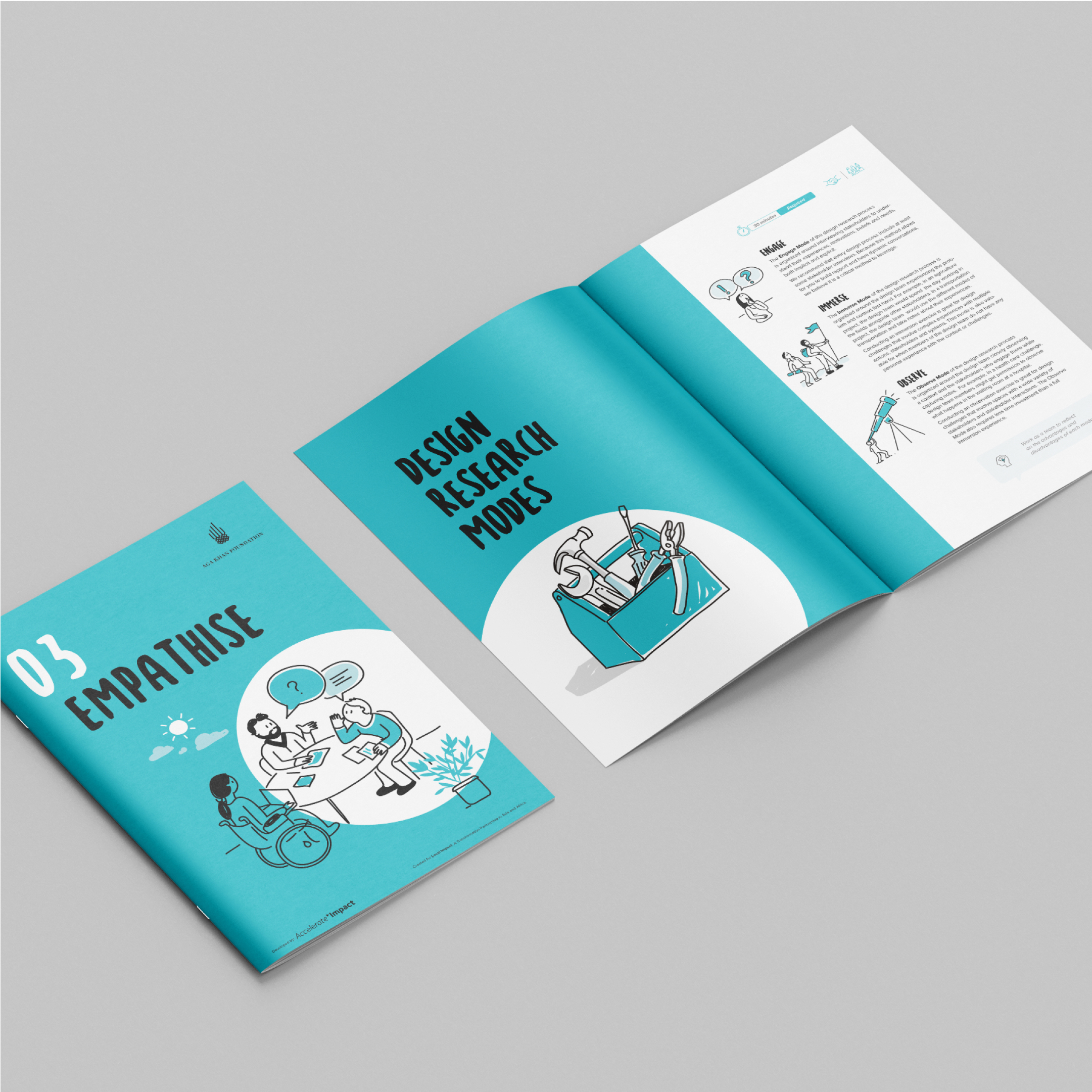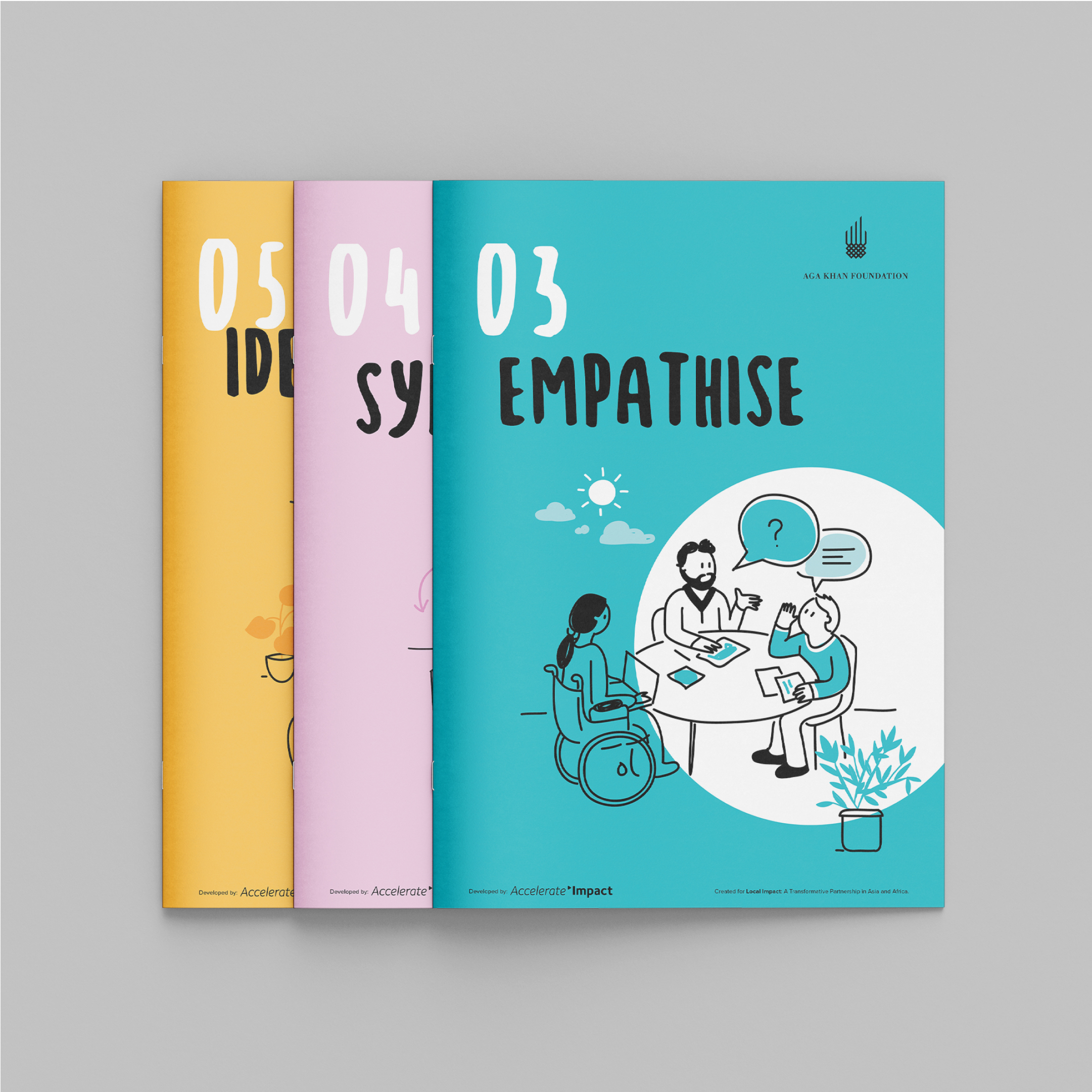AKF launches groundbreaking Human-Centred Design toolkit to drive social innovation
Free, open-source resource aims to help development practitioners design better, people-centred solutions and put communities in charge of their development.

- Human-Centred Design is a vital method for tackling today’s complex development challenges—ensuring solutions are inclusive, sustainable, and locally owned.
- Free, open-source resource aims to help development practitioners design better, people-centred solutions and put communities in charge of their development.
- The Toolkit is grounded in five years of global field testing across sectors and communities.
- The Toolkit supports civil society and frontline organisations, helping them strengthen their impact with practical, proven tools.
- This launch reflects AKF’s commitment to innovation, and its role as a leader in human-centred approaches to global development.
The Aga Khan Foundation (AKF) is proud to announce the launch of the Accelerate Impact Guide to Human-Centred Design for Social Innovation, a toolkit designed to democratise design methods and empower communities to develop their own solutions to pressing social challenges. This toolkit is free and accessible to everyone but will be of particular interest to humanitarian workers and international development professionals who seek to engage and collaborate with the communities in which they are working.
International development efforts have long been shaped by external experts and funders who bring valuable resources and knowledge but may not always have a deep understanding of the day-to-day realities faced by the communities they seek to support. Marginalised groups – especially women and children – often have limited access to decision-making power despite being most affected by systemic challenges.
Recognising the opportunity to strengthen community-led approaches, AKF embarked on a five-year journey to create an accessible, structured, and ethical approach to Human-Centred Design (HCD) that puts communities at the heart of social innovation. Building on an international movement around design thinking and HCD, the Accelerate Impact team worked to evolve and develop the process to be more suitable to the contexts in which we work as an organisation.

The HCD toolkit introduces a step-by-step process to design inclusive, community-led solutions to real-world challenges.
A new approach to Human-Centred Design
The Accelerate Impact Guide goes beyond traditional HCD methodologies by addressing key critiques and ensuring a rigorous yet adaptable process that:
- Empowers local communities to collaborate with development professionals to lead their own innovation processes, shifting the traditional power dynamic in development work.
- Balances structure with flexibility, providing clear scaffolding for those new to HCD while allowing experienced practitioners to tailor the approach to their needs.
- Engages with complexity, embracing the challenges of entrenched social issues rather than oversimplifying them.
- Prioritises ethical co-design, ensuring that communities are active participants in shaping solutions that will directly impact their lives.
- Incorporates environmental sustainability into the human-centered design (HCD) process is crucial for creating products, services, or systems that not only meet human needs but also minimize their impact on the environment.
We believe strongly in the need for those with decision-making power to co-create solutions with the communities they serve.Munir Ahmad, Global Lead for Innovation, Aga Khan Foundation

The “Empathise” phase builds trust and insight through deep listening—especially with those most affected by systemic challenges.
From concept to impact: Real-world results
Developed by AKF’s Accelerate Impact team, the toolkit has been extensively tested in Central and South Asia, undergoing multiple iterations based on real-world feedback. The results speak for themselves. Local leaders trained in HCD have gained deeper insights into their own communities, leading to more effective, community-driven solutions.
Nilufar Qambarova, an early participant in the HCD training in Tajikistan who later became a facilitator herself, reflected on the impact of the approach: “We engaged closely with communities through participatory research, identifying needs, aspirations, and challenges that might otherwise go unnoticed. Despite having grown up in the same context, I was surprised by some of the nuanced findings these tools revealed. These insights are critical in designing solutions that communities will actually adopt.”
I was surprised by some of the nuanced findings these tools revealed. These insights are critical in designing solutions that communities will actually adopt.Nilufar Qambarova, early participant in HCD training in Tajikistan
Making Human-Centred Design more accessible
One of the core challenges in creating this guide was ensuring that those with little prior experience in design thinking could still apply these principles effectively and ethically. Unlike other HCD resources that assume prior knowledge or extensive facilitation, the Accelerate Impact Guide provides step-by-step guidance to develop key skills, including:
- Deep listening and empathy, helping teams to uncover real community needs while acknowledging their own biases.
- Synthesis and sensemaking, enabling teams to analyse complex information and distil actionable insights.
- Prototyping and testing, allowing practitioners to quickly develop and refine solutions before scaling.
AKF has designed these tools to meet people where they are – whether they need a fully guided process or targeted support in generating ideas or testing solutions. By providing a structured yet adaptable approach, the toolkit ensures that more people can take creative, ethical, and bold action to improve lives.

Explore a curated set of tools for each phase of the design journey—practical, field-tested, and flexible enough to support teams of all experience levels and project types.
A call to action for ethical and equitable innovation
The Accelerate Impact Guide to Human-Centred Design for Social Innovation is more than just a toolkit; it is a call to action for development practitioners, social innovators, and community leaders to embrace ethical and community-driven design.
“We believe strongly in the need for those with decision-making power to co-create solutions with the communities they serve,” says Munir Ahmad, Global Lead for Innovation at the Aga Khan Foundation. “But we also recognise that this is difficult work, even for those with experience. That’s why we’ve developed this toolkit—to provide the support and structure needed to do this work effectively, ethically, and sustainably.”
By making these tools open-source and widely available, AKF aims to inspire a shift in how development work is done – moving away from prescriptive solutions and toward collaborative, community-led innovation.
The Accelerate Impact Guide to Human-Centred Design for Social Innovation is available to download for free now from the Aga Khan Foundation’s Learning Hub: https://akflearninghub.org/initiative/human-centred-design/

Support our work Your donations are helping us build a future where we all thrive together.